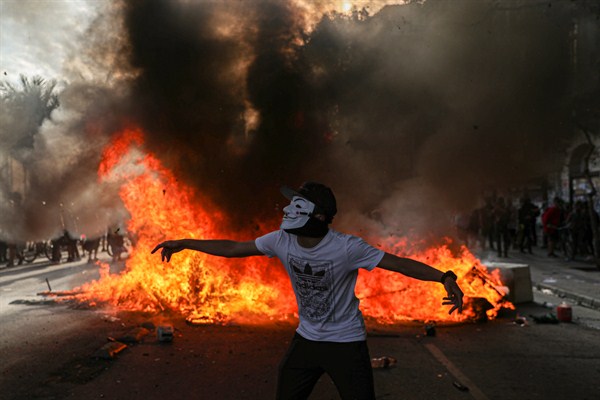A season of discontent has descended across Latin America, where economies have stalled, politics have become more polarized and poisonous, and millions of newly middle-class citizens have begun to wonder whether they will be able to hold on to their hard-won gains. Sparked by a stolen election here, an increase in the price of gasoline or subway fares there, people from Ecuador to Chile to Bolivia and now Colombia have spilled into the streets angry with their leaders. Where mass protests haven’t erupted—in Argentina, Brazil and Mexico—voters have instead registered their mounting frustrations against incumbents at the ballot box.
It all represents a sharp rebuke of the cozy political and economic arrangements from both the left and the right that continue to hold back the full promises of democracy in the region. Latin Americans en masse seem to be rejecting the self-dealing of their elites and demanding a better quality of life. Regrettably, this popular outcry is also an invitation for outsiders to meddle for their own purposes.
Broad trends across Latin America have combined to create these current circumstances. The wave of democratization in the 1980s and 1990s empowered new political and economic actors to press for new rights and civic participation at the ballot box. The rise of China provided an economic boom, thanks to Latin America’s resources and commodities. In country after country, leaders who promised to redistribute rising national income from traditional elites to the broader population were swept into office by constituencies demanding a greater share. But as economies grew, many of those leaders abandoned their economic pledges, instead pouring money into their own political projects and interests. Resources were squandered on a massive scale, as corruption exploded and institutions that were supposed to provide effective guardrails, like legislatures and courts, were tested and breached repeatedly by zealous, overreaching presidents.

